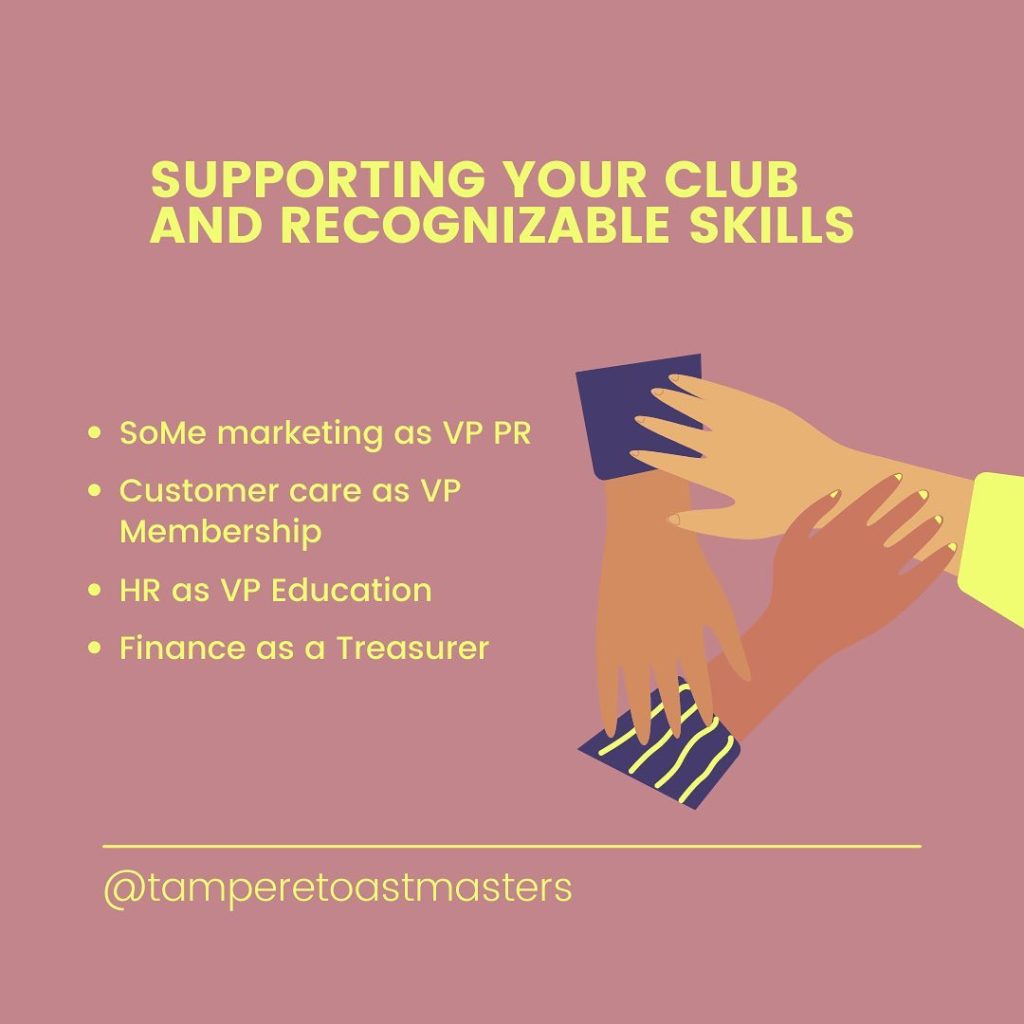Professional life is changing significantly and not only due to the last two years of the pandemic but also due to different needs people have in their workplaces. Life as we know it is not a one-career-per-lifetime world anymore. People change jobs on a routine basis and may even jump careers. It is not unimaginable to move from construction to a trainer or urban engineer to a pizza chef. Therefore to navigate the more and more professionally complex environment, we need new skills to develop.
In Tampere Toastmasters, we believe that public speaking helps our career growth and advancement because of five reasons:
We become better communicators.
By delivering prepared speeches regularly, we are working on a variety of speaking skills. There are projects we can focus on body language, voice variety, dealing with difficult audiences, and timing. Crafting a solid message comes with time, as in the beginning, we focus on consistency.
Table Topics provide a setting for practising impromptu speaking; preparing to talk about an unfamiliar topic for 1-2 minutes helps when encountering someone new and with nothing to say. Pick a topic and go confidently with it; we learn.
Speaking skills can help you excel in job interviews, pitch an idea or asking for a promotion.
We have a chance to take leadership roles.
In a Toastmasters club, everyone is given a chance to conduct a meeting. Being a Toastmaster of the evening allows you to build soft skills like time management, self-confidence and poise, effectively lead meetings, increased productivity. Table topics master practices active listening and members’ engagement, and every other role have something to teach us. Each club has many different opportunities to lead. You can join the board, consisting of the president, vice president of education, treasurer and a few more. On a higher level, we could also be an area, division or district director. Dream as big as you want!
We learn to give and receive feedback.
If you want to practice receiving and implementing feedback, Toastmasters is a very supportive and feedback-driven environment that will push and encourage you to do so. Every performance during a meeting is evaluated, and every one of us has a chance to learn something new. Giving feedback is not simply stating our opinion, but it should bring real value to the other person. It is not telling people what they did wrong. It mainly tells people what they did right, supporting them to learn and grow.
In an ideal world, feedback is a gift to give and a gift to receive when we incorporate feedback to accelerate our progress; we improve faster.
We are responsible for our personal development.
‘Without commitment, you’d never start, but more importantly, without consistency, you’d never grow’. It’s a choice to work on our skills that we make consciously.
We have a chance to connect with people internationally.
There are more than 300K Toastmasters globally. Visiting a club has never been easier with virtual travelling. Meeting people with different backgrounds, cultures, and experiences broaden our horizons and expand our opportunity to be more visible and employable. Public speaking can be a great way to network and meet others in your industry or who have similar interests.
It’s incredible how much you can achieve with good public speaking abilities. Why not try it?
— Written by Mina Kostova
Vice President of Public Relations





